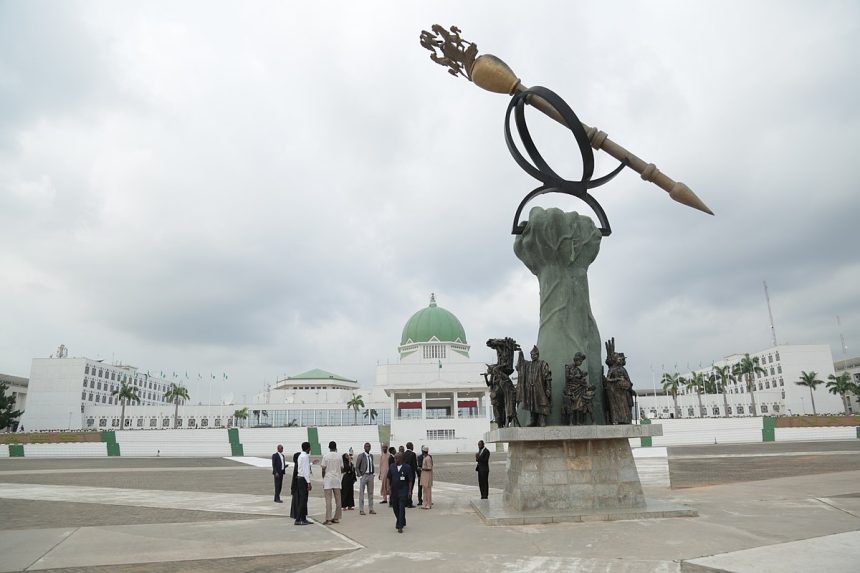*Insists Beneficiaries Must Present Progress Reports, Projects Location, Current Status
The Senate would on November 30 begin an investigative hearing into the over N250 billion disbursed by the Central Bank of Nigeria (CBN) to fifteen companies under the Nigeria Gas Expansion Programme (NGEP) intervention fund.
A notice signed by the Chairman, Senate Committee on Gas, Senator Jarigbe Jarigbe, called on the beneficiaries to appear before the panel with “progress reports, location of projects, and current status of projects.”
Companies affected include Dangote Oil Refinery, Delta State Government, NIPCO Gas Ltd, NIPCO PLC, HYDE Energy Ltd, LEE Engineering and Construction Company, Transit Gas Ltd, among others.
Recall that in 2020 the federal government through the CBN launched the 250bn National Gas Expansion Programme.
It said that the programme was in a bid to provide access to private sector investments in the domestic gas value chain and stimulate investments in development of infrastructure.
It was also aimed at optimizing the domestic gas resources for economic
development.
The Apex Bank had also noted that “with proven gas reserves of 188 trillion cubic feet (tcf) of gas, the natural gas industry presents an opportunity to diversify the economy through domestic commercial utilisation of its natural gas.
It further stated that the low level of investment in the industry has resulted in the minimal production and utilization of Compressed Natural Gas (CNG) and Liquefied Petroleum Gas (LPG) as clean
alternative sources of domestic energy in Nigeria.
According to the federal government, the NGEP fund was available to finance the establishment of gas processing plants and small-scale petrochemical plants, gas cylinder manufacturing plants, Compressed Natural Gas (CNG) regasification modular systems, automatic conversion kits or components manufacturing plants, CNG primary and secondary compression stations, as well as micro distribution outlets and service centres of liquefied petroleum gas (LPG) sales.
It said that the facility was designed to meet certain objectives, including improved access to finance for private sector investments in the domestic gas value chain and stimulate investments in the development of infrastructure to optimise domestic gas resources for It also set out to fast-track the adoption of CNG as the fuel of choice for transportation and power generation, as well as LPG as the fuel of choice for domestic cooking, transportation and captive power.
Hence it would equally provide leverage for additional private sector investments in the domestic gas market, boost employment across the country and fast-track the development of gas-based industries, particularly petrochemicals (fertiliser and methanol, among others).
This is with a view to supporting large industries such as agriculture, textile and related industries.
This is even as it would service the development/enhancement of auto gas transportation systems, conversion and distribution infrastructure, enhancement of domestic cylinder production and distribution by cylinder manufacturing plants and LPG wholesale outlets, and any other mid to downstream gas value chain-related activity recommended by the Ministry of Petroleum Resources.
Eligible activities under the intervention shall include: Establishment of gas processing plants and small-scale petrochemical plants;
Establishment of gas cylinder manufacturing plants; Establishment of L-CNG regasification modular systems; Establishment of auto gas conversion kits or components manufacturing plants.
Others are the Establishment of CNG primary and secondary compression stations; Establishment and manufacturing of LPG retail skid tanks and refilling equipment;
Development/enhancement of auto gas transportation systems, conversion and distribution infrastructure;
Enhancement of domestic cylinder production and distribution by cylinder manufacturing plants and LPG wholesale;
Establishment/expansion of micro distribution outlets and service centres for LPG sales, domestic cylinder injection and exchange; and Any other mid to downstream gas value chain related activity recommended by the Ministry of Petroleum Resources (MPR).











